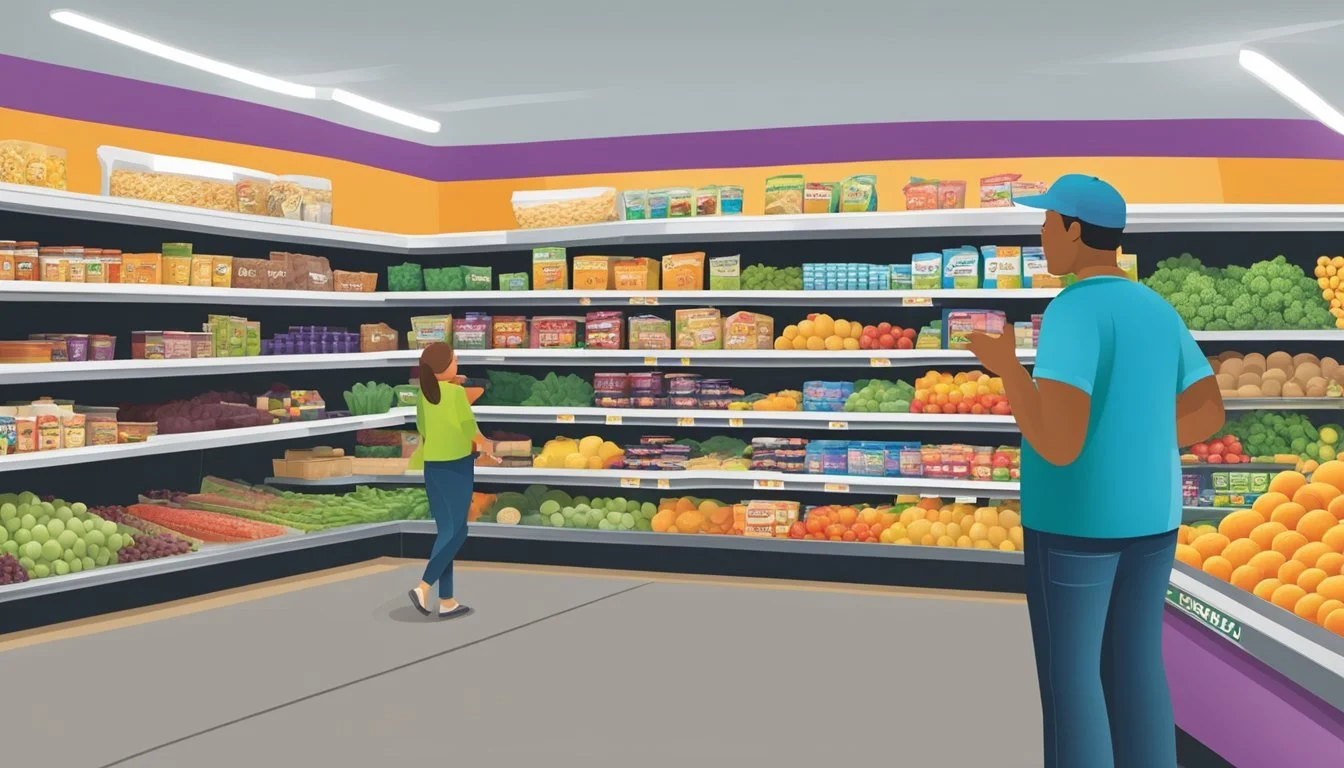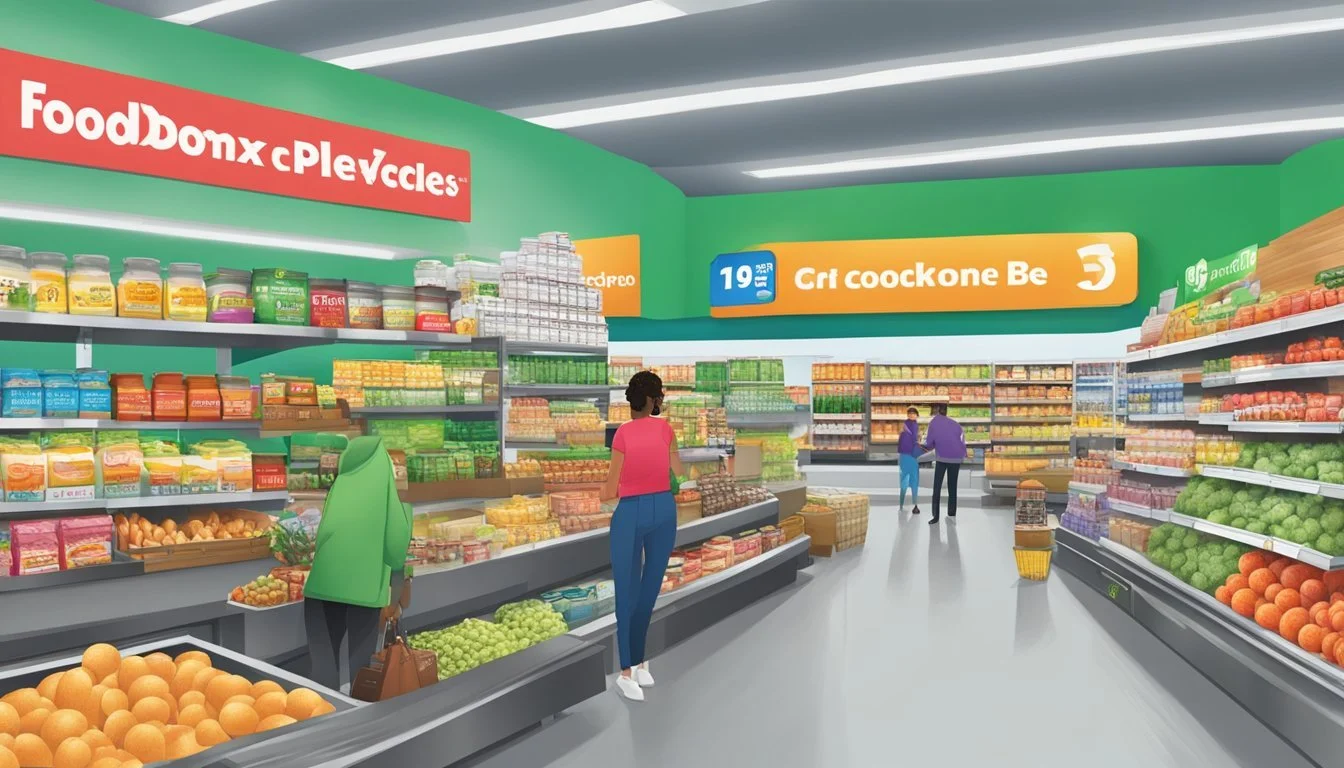Is FoodMaxx Cheaper Than Stop & Shop?
A price comparison of two popular grocery chains
Grocery shopping can be a significant expense for many households, prompting savvy consumers to seek out the best deals. FoodMaxx and Stop & Shop are two popular grocery chains that offer different shopping experiences and pricing strategies.
While FoodMaxx generally offers lower prices than Stop & Shop, the exact savings can vary depending on specific items and location. FoodMaxx operates as a discount supermarket chain, focusing on providing customers with low-cost groceries through a no-frills approach. Stop & Shop, on the other hand, is a traditional supermarket that offers a wider range of products and services.
Price-conscious shoppers often find that FoodMaxx's streamlined operations and limited selection translate to noticeable savings on their grocery bills. However, it's important to note that individual product prices can fluctuate, and Stop & Shop may offer competitive deals on certain items through sales and promotions. Consumers looking to maximize their savings should compare prices on their most frequently purchased items at both stores to determine which retailer offers the best overall value for their specific needs.
Understanding Grocery Store Pricing
Grocery store pricing involves complex strategies and factors that impact the final cost of products. Different chains employ various approaches to attract customers while maintaining profitability.
Factors Affecting Prices
Location plays a crucial role in grocery store pricing. Stores in urban areas often have higher prices due to increased rent and operational costs. Rural stores may offer lower prices but face higher transportation expenses.
Supply and demand greatly influence pricing. Seasonal produce tends to be cheaper when abundant. Economic conditions, like inflation, can drive up costs across the board.
Store size impacts pricing. Larger chains can negotiate better deals with suppliers and spread costs over more locations, potentially offering lower prices.
Competition in the area forces stores to adjust their pricing strategies. Chains may lower prices on popular items to draw customers, while raising prices on less noticeable products.
The Role of Private Labels
Private label products, also known as store brands, significantly affect pricing strategies. These items are typically 15-30% cheaper than national brands.
Grocery chains develop private labels to increase profit margins and offer budget-friendly options. They control production costs and can price these items competitively.
Private labels allow stores to differentiate themselves from competitors. Unique store brand offerings can attract loyal customers seeking specific products at lower prices.
Quality of private label items has improved over time. Many now rival national brands in taste and ingredients, offering customers savings without significant compromise.
Comparing Specific Categories
FoodMaxx and Stop & Shop differ in pricing across various grocery categories. A closer look at specific departments reveals how the two stores compare on everyday staples.
Fresh Produce Comparison
FoodMaxx generally offers lower prices on fresh fruits and vegetables compared to Stop & Shop. Seasonal produce like apples, bananas, and lettuce tend to be 10-15% cheaper at FoodMaxx.
Stop & Shop sometimes has better deals on organic produce, though their conventional options are typically pricier. FoodMaxx's produce selection may be more limited, but the quality is comparable for most items.
Local and specialty produce varieties are more likely to be found at Stop & Shop, albeit at higher prices.
Packaged Foods and Dry Goods
FoodMaxx excels in the dry goods and packaged foods categories, with prices often 15-20% lower than Stop & Shop. Items like pasta, rice, canned goods, and peanut butter are consistently cheaper at FoodMaxx.
Stop & Shop carries a wider variety of brands and specialty items in these categories. However, their private label products are competitively priced and may occasionally beat FoodMaxx's prices on similar items.
Bulk purchases of dry goods tend to offer better value at FoodMaxx, while Stop & Shop may have more frequent sales on name-brand packaged foods.
Deli and Bakery Offerings
Stop & Shop generally has a more extensive deli and bakery section compared to FoodMaxx. Their selection of freshly baked bread, pastries, and custom-sliced meats is broader.
FoodMaxx's deli and bakery offerings are more limited but often priced lower. Pre-packaged deli meats and cheeses at FoodMaxx can be 10-15% cheaper than Stop & Shop's counter service options.
Stop & Shop may have an edge in specialty bakery items and prepared foods, while FoodMaxx focuses on basic staples at lower prices. Both stores offer similar quality for standard deli meats and cheeses.
Exploring Discount Options
FoodMaxx and Stop & Shop both offer ways for shoppers to save money. These include weekly sales, special promotions, and loyalty programs with digital coupons.
Weekly Sales and Special Deals
FoodMaxx runs weekly sales advertised in their circular. These deals typically feature discounts on fresh produce, meat, and popular grocery items. The store also offers "MAXXimum Value" specials, which are deeply discounted items available for a limited time.
Stop & Shop provides weekly circular deals as well. Their sales often include buy-one-get-one offers and percentage discounts on various products. The chain occasionally runs themed promotions, such as "Stock Up & Save" events with bulk purchase discounts.
Both stores mark down perishable items nearing their sell-by dates. These last-minute deals can lead to significant savings for shoppers willing to use products quickly.
Loyalty Programs and Digital Coupons
FoodMaxx offers a free MAXXimizers program. Members access exclusive deals and digital coupons through the FoodMaxx app or website. Shoppers clip digital coupons to their account and redeem savings by entering their phone number at checkout.
Stop & Shop's loyalty program is called Stop & Shop GO Rewards. Members earn points on purchases, which can be redeemed for discounts on gas or groceries. The program also provides personalized deals based on shopping history.
Both stores' apps allow users to browse current sales, clip digital coupons, and create shopping lists. These digital tools help customers plan their shopping trips and maximize savings.
Strategies for Maximum Savings
To maximize savings when grocery shopping, focus on smart shopping practices and effective meal planning. These strategies can significantly reduce your food expenses while still meeting your nutritional needs.
Smart Shopping Practices
Compare prices between FoodMaxx and Stop & Shop regularly. Prices fluctuate, so staying informed helps identify the best deals. Use store loyalty cards and apps to access exclusive discounts and earn rewards points. Buy generic or store-brand products when possible, as they're often cheaper than name brands.
Stock up on non-perishable items when they're on sale. Check weekly circulars and plan shopping trips around major promotions. Consider buying in bulk for frequently used items, but only if you can use them before they expire.
Shop during off-peak hours to avoid impulse purchases. Use a calculator while shopping to keep track of spending. Always check unit prices to ensure you're getting the best value.
Meal Planning and Budget Tips
Create a weekly meal plan based on sales and what's already in your pantry. This reduces food waste and prevents unnecessary purchases. Build meals around affordable, nutrient-dense ingredients like beans, rice, and in-season produce.
Make a detailed shopping list and stick to it. Group similar items together to streamline your shopping trip. Avoid shopping when hungry to reduce impulse buys.
Cook large batches and freeze portions for quick, budget-friendly meals later. Use leftovers creatively to stretch ingredients further. Try "meatless Mondays" or similar concepts to reduce spending on more expensive protein sources.
Set a realistic grocery budget and track spending. Adjust your meal plans and shopping habits as needed to stay within your budget. Consider using cash or a prepaid card to limit overspending.
Customer Experiences and Perceptions
FoodMaxx and Stop & Shop evoke different reactions from shoppers based on their prices, product quality, and overall shopping experience. Customer feedback highlights key differences between the two grocery chains.
Satisfaction and Quality of Service
FoodMaxx receives mixed reviews for customer service. Some shoppers appreciate the self-checkout options for quick purchases. Others report long lines and a less polished shopping environment. The produce quality at FoodMaxx can be inconsistent, with some customers finding it subpar compared to other stores.
Stop & Shop tends to offer a more traditional supermarket experience. Customers often note cleaner stores and more attentive staff. The chain typically provides a wider selection of products, including more premium and organic options. This can appeal to shoppers looking for variety and higher-quality items.
Feedback on Prices and Deals
FoodMaxx earns praise for its low prices on staple items. Many customers view it as a budget-friendly option for basic groceries. The store's "MAXXimizers" program offers digital coupons and member-only deals, which savvy shoppers appreciate.
Stop & Shop is generally perceived as pricier than FoodMaxx. However, customers value its frequent sales and loyalty program discounts. Some shoppers find that Stop & Shop's deals can make certain items competitive with discount chains.
Price-conscious consumers often shop at both stores. They buy basics at FoodMaxx and take advantage of Stop & Shop's sales on specific products. This strategy allows them to maximize savings while still accessing a broad range of grocery options.
Grocery Chain Overview
FoodMaxx and Stop & Shop are two distinct grocery store chains with unique approaches to serving customers. Their business models and offerings cater to different market segments.
FoodMaxx vs Stop & Shop Profile
FoodMaxx operates as a discount grocery chain primarily in California and Nevada. It focuses on providing low prices through a no-frills shopping experience. The stores feature a warehouse-style layout with products often displayed in their shipping boxes.
Stop & Shop, in contrast, is a full-service supermarket chain with over 400 locations across the Northeastern United States. It offers a wider range of products and services, including prepared foods, pharmacies, and specialty departments.
Similarities and Differences
Both chains aim to provide customers with affordable grocery options, but their methods differ. FoodMaxx emphasizes rock-bottom prices through cost-cutting measures like minimal decor and reduced staff. Stop & Shop offers a more traditional supermarket experience with competitive pricing.
FoodMaxx typically has a smaller selection of products compared to Stop & Shop. While FoodMaxx focuses on essential items, Stop & Shop provides a broader range of choices, including organic and gourmet options.
Stop & Shop often features loyalty programs and digital coupons for additional savings. FoodMaxx, on the other hand, relies on its everyday low prices as its main draw for budget-conscious shoppers.
Conclusion
FoodMaxx and Stop & Shop offer distinct pricing strategies that impact grocery budgets. Understanding the key differences helps shoppers make informed decisions.
Final Price Comparison Insights
FoodMaxx generally provides lower prices compared to Stop & Shop. The average grocery bill at FoodMaxx is typically 10-15% less than at Stop & Shop. This translates to potential savings of $25-$37 on a $250 weekly grocery trip.
FoodMaxx excels in offering competitive prices on staple items like produce, dairy, and pantry essentials. Their meat prices are often significantly lower than Stop & Shop's. However, Stop & Shop may have better deals on certain specialty or organic products.
Making the Right Choice for Your Budget
Families looking to maximize savings should consider FoodMaxx as their primary grocery destination. The store's focus on everyday low prices can lead to substantial long-term savings. A family spending $250 weekly could save up to $1,900 annually by choosing FoodMaxx over Stop & Shop.
Stop & Shop may be preferable for shoppers who prioritize a wider selection of brands or desire a more upscale shopping experience. Their loyalty program and weekly specials can offset some of the price differences for regular customers.
Ultimately, the best choice depends on individual preferences and shopping habits. Price-conscious consumers will likely find FoodMaxx to be the more budget-friendly option for most grocery needs.








